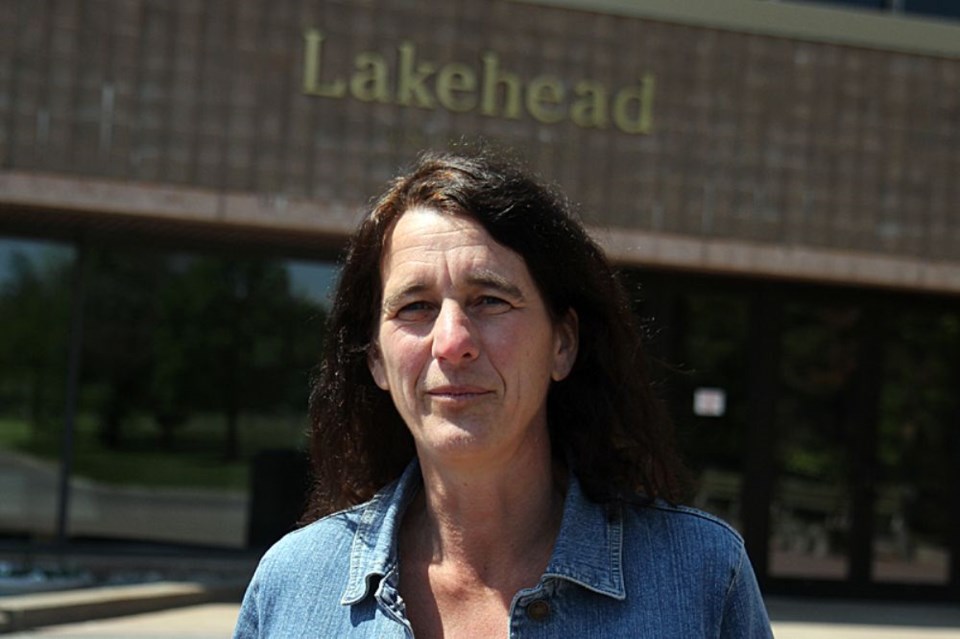THUNDER BAY – The chair of the sexual assault task force at Lakehead University describes the first year of implementation of recommendation a success, but there’s still work to do.
“I would (say it’s successful) but that doesn’t mean we’re done. It’s an ongoing, ever changing process and we have to be ready to adapt and keep improving and keep re-evaluating,” Lori Chambers said on Friday.
“Even the policy itself isn’t a policy for forever. We need to re-evaluate and revamp it on a regular basis to keep up to date with changes that are happening and make sure we’re offering the very best programming possible for our students.”
Last June the university announced it was accepting and implementing all of the recommendations from the Task Force on Sexual Assault Education, Prevention and Support, a body that was created in October 2013 after an anonymous student made public claims the school was lacking a comprehensive policy.
The student alleged she was sexually assaulted by a male classmate at his off-campus residence, and then school officials did not provide any accommodation in altering class schedules so she could avoid her attacker.
That led to them being in the same class the next school year, which resulted in her constantly feeling victimized all over again.
As well, a high-profile sexual assault case that happened in Thunder Bay involving two former University of Ottawa hockey players have changed how sexual assault and consent is talked about on campus.
“People are talking about what consent means and what the law is, which is new,” Chambers said. “Students didn’t previously concern themselves with what the state of the law is so that’s a healthy development.”
Chambers, who is also a women’s studies professor at Lakehead, said one of the most significant changes is how university officials discuss the subject with students.
Faculty members are provided training and brochures on what to do if a student approaches them and shares a painful experience. It advises how to ask questions without invading privacy, as well as guidance for next steps.
Chambers said many staff members have to come to her and said the new training makes them feel more comfortable and effective in handling situations.
“I’ve had a number of people I wouldn’t have expected coming to my office saying ‘this is great…and this gives me the information I need to do my job if this happens to me’,” she said.
While a lot has changed in the past year, there are still a number of recommendations from the task force that are still in the implementation process.
One of those is for the hiring of a human rights officer, which Chambers said the university has committed to and has allocated for in their budget.
That will play a significant role in giving students direction in reporting any incident.
“I think that’s an important piece because it engages the wider questions sexual violence is related to such as respect for all the differences that are engaged in human rights legislation,” she said.
“I see that as an important piece in educating everyone and providing everyone with an office they can go to when they feel something has happened that was disrespectful.”
